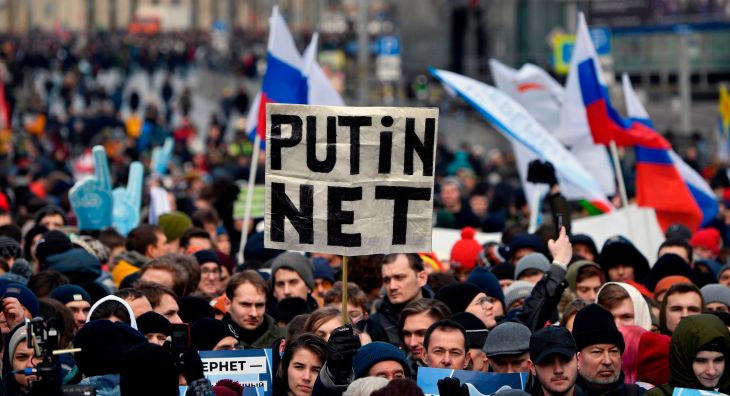The Russian government announced Friday that it will begin to “partially restrict” access to Facebook, according to an announcement from its internet regulatory agency Roskomnadzor.
Russia claimed that it would implement the measures, which were not specified, after Facebook put its own restrictions on four Russian state-linked media outlets, the television network Zvezda, news agency RIA Novosti, and the websites Lenta.ru and Gazeta.ru.
“On February 24, Roskomnadzor sent requests to the administration of Meta Platforms, Inc. remove the restrictions imposed by the social network Facebook on Russian media and explain the reason for their introduction,” Roskomnadzor wrote, adding that Facebook “ignored” its requests.
Meta Global Affairs VP Nick Clegg elaborated on the situation on Twitter, indicating that the Russian request came in response to either Facebook’s fact-checking practices or its policy of labeling of state-run media accounts. “Ordinary Russians are using @Meta’s apps to express themselves and organize for action,” Clegg wrote.
Facebook did not respond to TechCrunch’s request for comment on the Russian government’s claims and what actions it may have taken against state-backed media on the platform. For now, it’s not clear what partial restrictions mean for Russian Facebook users or if those limitations would extend to Meta-owned platforms like WhatsApp and Instagram.
As Russia deepens its invasion of neighboring Ukraine, thousands of Russians have taken to the streets to demonstrate against the war — in most cases at great personal risk. It’s possible that the Russian government is seeking to tamp down anti-war sentiment online and further shape the narrative of the war, starting with one of the biggest U.S.-owned social networks.
In the U.S., there’s some support for the idea that tech platforms like Facebook should take more strident action to limit the spread of Russian disinformation. A widely shared blog post published Thursday likened Russian President Vladimir Putin to Hitler, encouraging platforms to “choose sides” and crack down on the vast network of Russian propaganda accounts that spread disinformation online.
“Would you demand those publishers pull the plug on Hitler, or would you defend the German state’s right to some confused notion of ‘free speech,’ even as Hitler sets out to destroy the lives of millions?” Justin Hendrix, CEO and editor of Tech Policy Press, wrote in the post.
“That is the situation Google, Facebook, Twitter and other U.S. tech firms are faced with right now.”
